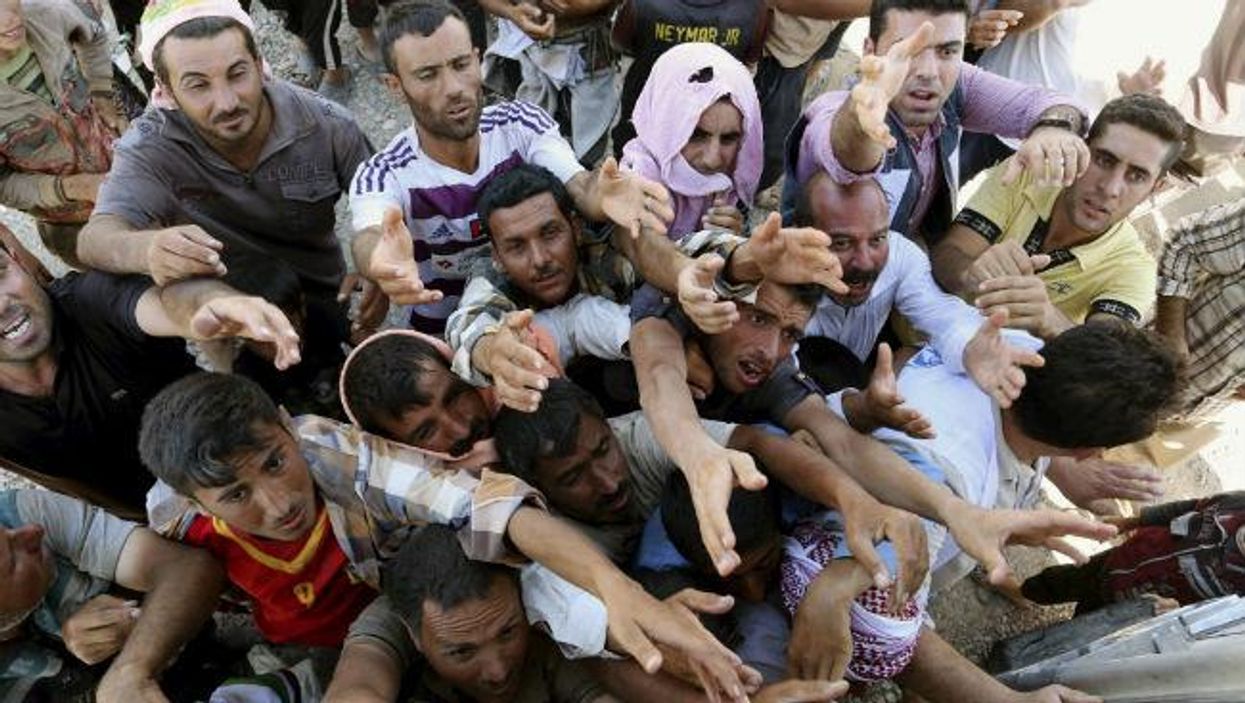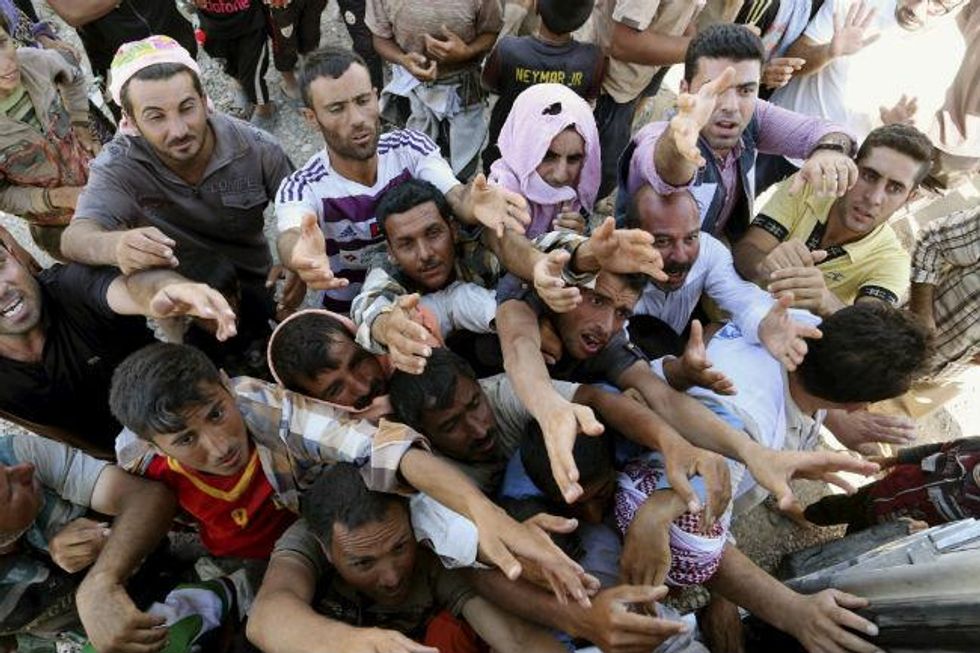News
Matthew Champion (original Report
Aug 11, 2014

Humanitarian aid is often described and referred to in such simple terms that it would seem to be a universal good - a panacea for the world's ills just waiting to be administered.
Sadly, since the birth of the modern professional aid movement in Biafra, where foreign aid prolonged the conflict and the misery of civilians, it is always much more complicated than that.
The issue is encapsulated in the plight of the Yazidis trapped in the mountains around Sinjar in Iraq.
Tens of thousands of people fled their homes ahead of the advance of fighters from the Islamic State, who had given Yazidis - a mysterious minority with links to Zoroastrianism - a convert or die ultimatum, while reports of atrocities were made by the government in Baghdad.
The UK has pledged £8million worth of aid including water, food and solar lanterns, with RAF planes making the first drops on Saturday.
However, an overnight aid drop had to be abandoned over fears the supplies would hit people on the ground.
The Independent's Oliver Wright reports that Downing Street said the RAF C130 turned back without delivering any aid.
The desperate nature of the situation saw the government admit for the first time that it might attempt to get British troops in the region in a humanitarian capacity.
"Some sort of force on the ground may well be considered," a No. 10 spokesperson said.
"The work on this is in the planning stage and then decisions will need to be taken."
More: The 'O' word no one dares mention when talking about Iraq
Top 100
The Conversation (0)














